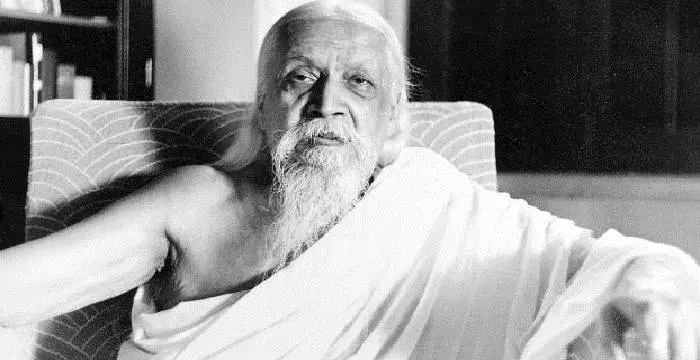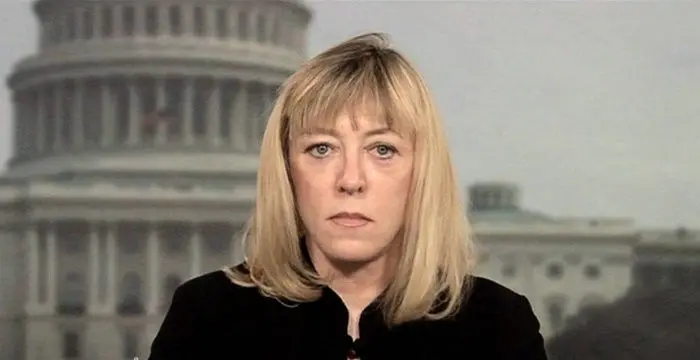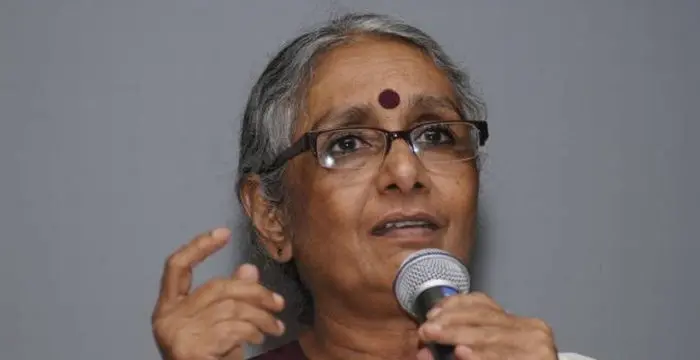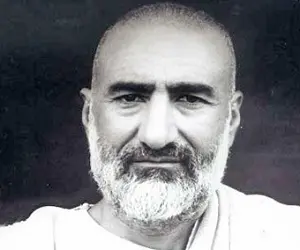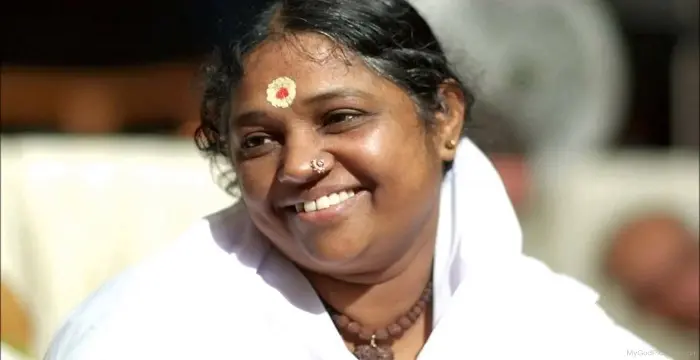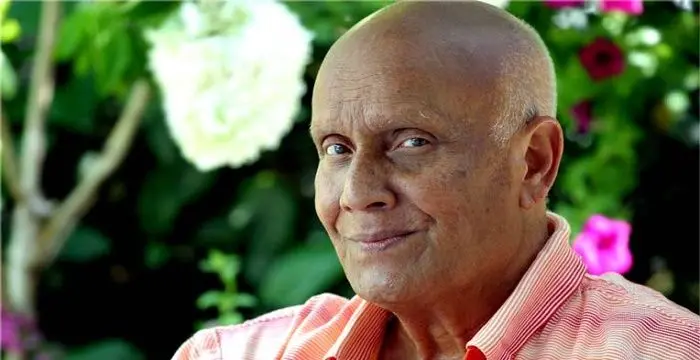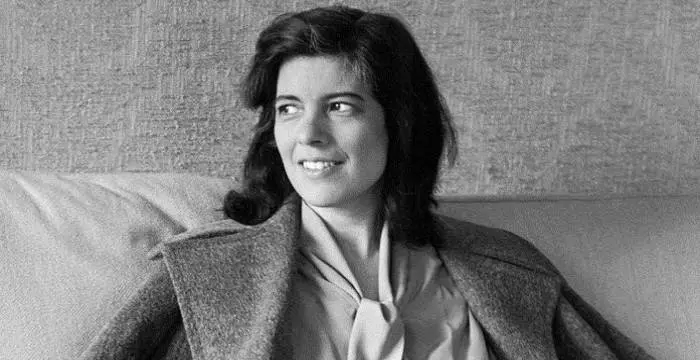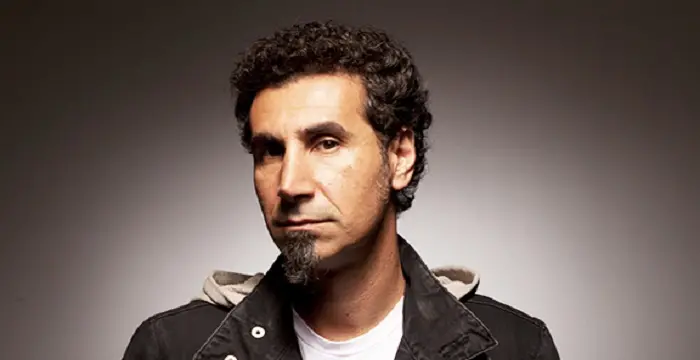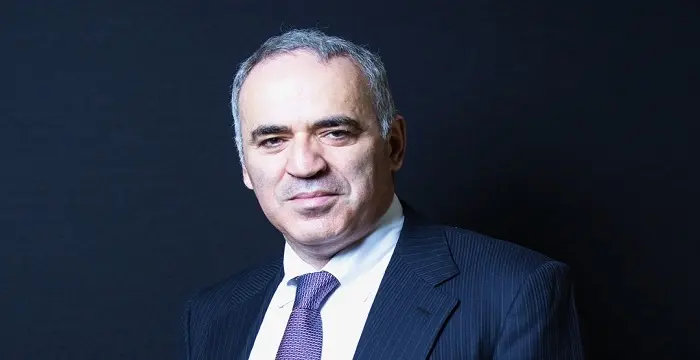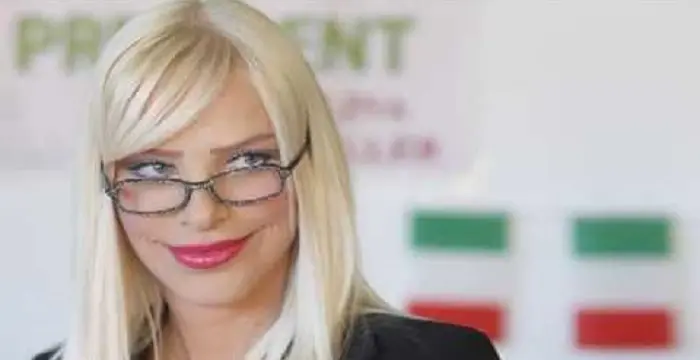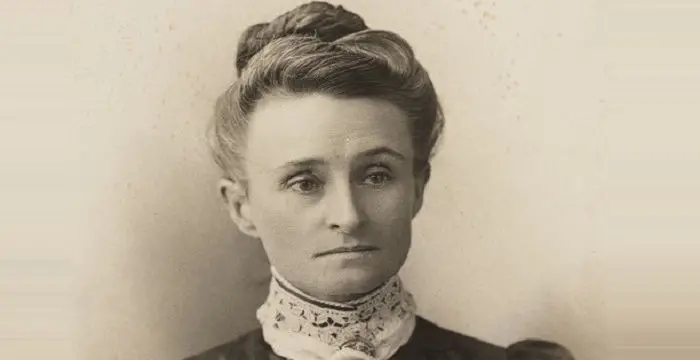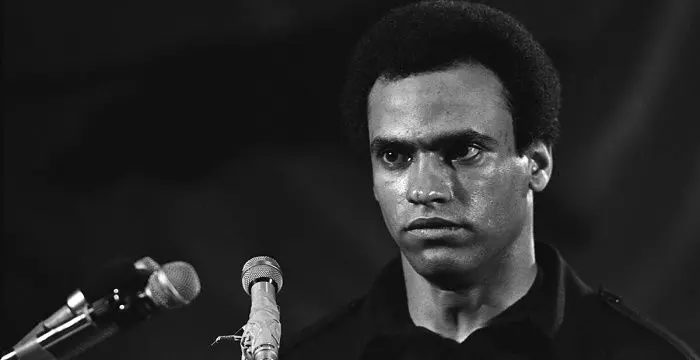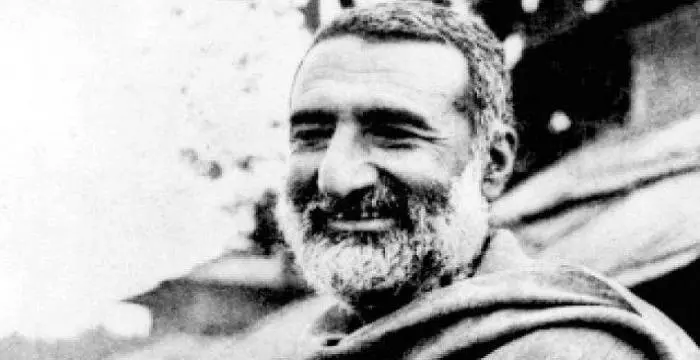
Khan Abdul Ghaffar Khan - Political, Timeline and Childhood
Khan Abdul Ghaffar Khan's Personal Details
Khan Abdul Ghaffar Khan was a political leader and a close friend of Mahatma Gandhi
| Information | Detail |
|---|---|
| Birthday | February 6, 1890 |
| Died on | January 20, 1988 |
| Nationality | Pakistani |
| Famous | Political Activists, Leaders, Political Leaders, Revolutionaries, Political, Spiritual Leader |
| Spouses | Meharqanda Khan, Nambata Khan |
| Siblings | Khan Abdul Jabbar Khan |
| Known as | Abdul Ghaffār Khān, Fakhr-e-Afghān, Bādshāh Khān, Bāchā Khān |
| Childrens | Khan Abdul Ali Khan, Khan Abdul Ghani Khan, Khan Abdul Wali Khan, Mehar Taj Khan, Sardaro Khan |
| Universities |
|
| Founder / Co-Founder |
|
| Birth Place | Utmanzai, Charsadda |
| Religion | Islam |
| Gender | Male |
| Father | Bahram Khan |
| Sun Sign | Aquarius |
| Born in | Utmanzai, Charsadda |
| Famous as | Political and Spiritual Leader |
| Died at Age | 97 |
// Famous Political
Sri Aurobindo
Sri Aurobindo was a great political reformer and a spiritual master. This biography profiles his childhood, career, achievements and timeline.
Jody Williams
Jody Williams is an American political and peace activist. This biography of Jody Williams provides detailed information about her childhood, life, activities, achievements and timeline.
Aruna Roy
Aruna Roy is an Indian political and social activist who founded the Mazdoor Kisan Shakti Sangathana. This biography of Aruna Roy provides detailed information about her childhood, life, achievements, works & timeline.
Khan Abdul Ghaffar Khan's photo
Who is Khan Abdul Ghaffar Khan?
Khan Abdul Ghaffar Khan was a Pashtun independence activist and a spiritual leader nicknamed as “Frontier Gandhi” due to his political activities and close association with the Indian leader, Mahatma Gandhi. He was a lifelong pacifist who advocated non-violent opposition and founded the Khudai Khidmatgar ("Servants of God") in order to protest against the British-controlled army by means of peaceful protests and political activism. He was a devout Muslim with an unwavering faith in the compatibility of Islam and nonviolence. He held liberal views and championed for women’s rights which made him much popular among the masses. He was strongly against the partition of India and dreamed of creating a united, independent and secular India. However, this was not to be and India was partitioned in 1947, causing him great distress and made him utter to the Congress his now-famous words of despair—“You have thrown us to the wolves.” After the partition he remained active in social and political activism and was frequently arrested for his activities which many Pakistanis felt were pro-Indian. The government even offered him a Ministry in the government in an attempt to reconcile with him, but nothing could stop him from fighting for the causes he believed in.
// Famous Spiritual Leader
Sri Aurobindo
Sri Aurobindo was a great political reformer and a spiritual master. This biography profiles his childhood, career, achievements and timeline.
Mata Amritanandamayi
Mata Amritanandamayi, lovingly called Amma, Ammachi, or Mother, is a Hindu spiritual leader of international standing. This biography explores the childhood, life and achievements of Mata Amritanandamayi.
Sri Chinmoy
Sri Chinmoy was an Indian spiritual master who advocated meditation and athleticism as means of achieving inner peace. This biography provides detailed information about his childhood, life, achievements, works & timeline.
Childhood & Early Life
He was born on 6 February 1890 into a wealthy family in the Peshawar Valley of British India. His father, Bahram Khan was a landowner.
As a child he attended the British run Edward's mission school—the only fully functional school in his area. He was a good student and performed well in his studies.
He was much impressed by the Reverend Wigram, his mentor, and realized the important role education played in promoting development. Early on he became involved in activities aimed at eradicating poverty and promoting literacy.
Later Years
He opened a mosque school in his hometown in 1910 when he was just 20. He was a principled and idealistic young man who traveled all over the country to promote his ideals about education.
He joined the independence movement of the Pashtun freedom fighter Haji Sahib of Turangzai, in 1911.
The British authorities banned his mosque school in 1915. Though saddened by this, Ghaffar was not disheartened. He decided that social activism and reform was the only way to bring about the emancipation of the Pashtuns.
He met Mahatma Gandhi, a prominent leader of the Indian independence movement, and was deeply influenced by his principles. Motivated by Gandhi he entered politics in 1919 during agitation over the Rowlatt Act.
In 1920, he joined the Khilafat movement which sought to strengthen the spiritual ties of Indian Muslims to the Turkish sultan, and the next year he was made the president of a district Khilafat committee in his native North-West Frontier Province.
He played a prominent role in the formation of ‘Anjuman-e Islāh-e Afāghina’ (Afghan Reform Society) in 1921 and the youth movement ‘Paxtun Jirga’ (Pashtun Assembly) in 1927.
He attended an Indian National Congress (Congress Party) gathering in 1929, and soon afterwards he founded the Khudai Khidmatgar, also known as the ‘Red Shirt Movement’, among the Pashtuns. The movement advocated non-violent nationalist agitation in support of Indian independence.
His acquaintance with Gandhi blossomed into a deep friendship and by the 1930s he had become one of the main advisors to Gandhi and his Red Shirt movement actively supported the Congress Party.
He worked closely with Gandhi for many years until the partition of India in 1947. Ghaffar was strongly opposed to partition as he had dreamed of a unified secular nation. But that was not to be.
After the partition he chose to live in Pakistan where he continued fighting for the rights of the Pashtuns. However, he was often accused of being pro-Indian.
He continued his activism and was arrested several times between 1948 and 1956 for his opposition to the One Unit Scheme which sought to merge the Four Provinces of West Pakistan into a single province.
Suffering form poor health, he went to the United Kingdom for treatment in 1964 where his doctors advised him to go to the United States. Then he went into exile in Afghanistan, and returned from exile in 1972. The very next year he was arrested by Prime Minister Zulfiqar Ali Bhutto's government at Multan.
Over the next few years he gradually withdrew from politics. He visited India to participate in the centennial celebrations of the Indian National Congress in 1985.
Awards & Achievements
He was presented with the Amnesty International Prisoner of Conscience of the Year, in 1962.
He was awarded the Jawaharlal Nehru Award for International Understanding in 1967.
He was awarded the Bharat Ratna, India's highest civilian award, in 1987, making him the first non-Indian to receive this honour.
Personal Life & Legacy
He married Meharqanda in 1912; she was a daughter of Yar Mohammad Khan of the Kinankhel clan of the Mohammadzai tribe of Razzar. They had two sons, Abdul Ghani Khan and Abdul Wali Khan, and one daughter, Sardaro. Unfortunately his wife died in 1918.
He married Nambata, a cousin of his first wife, in 1920. The couple had a daughter and a son. Tragedy struck again when Nambata died in 1926 after falling down the stairs at their home. Ghaffar decided not to marry again in spite of being relatively young.
He lived a long life much of which was spent in social and political activism. He died on 20 January 1988 in Peshawar at the age of 97.
// Famous Political Leaders
Edi Rama
Edi Rama is the current Prime Minister of Albania. Check out this biography to know about his childhood, life, achievements, works & timeline.
Khalifa bin Zayed Al Nahyan
Sheikh Khalifa bin Zayed Al Nahyan is the current President of the United Arab Emirates (UAE). Check out this biography to know about his birthday, childhood, family life, achievements and fun facts about him.
Leo Varadkar
Cam Leo Varadkar is the current Taoiseach—the Prime Minister—of the Republic of Ireland. Check out this biography to know about his childhood, family life, achievements and other facts about his life.
Khan Abdul Ghaffar Khan's awards
| Year | Name | Award |
|---|---|---|
Other | ||
| 0 | Amnesty International Prisoner of Conscience of the Year (1962) | |
| 0 | Jawaharlal Nehru Award for International Understanding (1967) | |
| 0 | Bharat Ratna (1987) | |
Khan Abdul Ghaffar Khan biography timelines
- // 6th Feb 1890He was born on 6 February 1890 into a wealthy family in the Peshawar Valley of British India. His father, Bahram Khan was a landowner.
- // 1910He opened a mosque school in his hometown in 1910 when he was just 20. He was a principled and idealistic young man who traveled all over the country to promote his ideals about education.
- // 1911He joined the independence movement of the Pashtun freedom fighter Haji Sahib of Turangzai, in 1911.
- // 1912 To 1918He married Meharqanda in 1912; she was a daughter of Yar Mohammad Khan of the Kinankhel clan of the Mohammadzai tribe of Razzar. They had two sons, Abdul Ghani Khan and Abdul Wali Khan, and one daughter, Sardaro. Unfortunately his wife died in 1918.
- // 1915The British authorities banned his mosque school in 1915. Though saddened by this, Ghaffar was not disheartened. He decided that social activism and reform was the only way to bring about the emancipation of the Pashtuns.
- // 1919He met Mahatma Gandhi, a prominent leader of the Indian independence movement, and was deeply influenced by his principles. Motivated by Gandhi he entered politics in 1919 during agitation over the Rowlatt Act.
- // 1920In 1920, he joined the Khilafat movement which sought to strengthen the spiritual ties of Indian Muslims to the Turkish sultan, and the next year he was made the president of a district Khilafat committee in his native North-West Frontier Province.
- // 1920 To 1926He married Nambata, a cousin of his first wife, in 1920. The couple had a daughter and a son. Tragedy struck again when Nambata died in 1926 after falling down the stairs at their home. Ghaffar decided not to marry again in spite of being relatively young.
- // 1921 To 1927He played a prominent role in the formation of ‘Anjuman-e Islāh-e Afāghina’ (Afghan Reform Society) in 1921 and the youth movement ‘Paxtun Jirga’ (Pashtun Assembly) in 1927.
- // 1929He attended an Indian National Congress (Congress Party) gathering in 1929, and soon afterwards he founded the Khudai Khidmatgar, also known as the ‘Red Shirt Movement’, among the Pashtuns. The movement advocated non-violent nationalist agitation in support of Indian independence.
- // 1947He worked closely with Gandhi for many years until the partition of India in 1947. Ghaffar was strongly opposed to partition as he had dreamed of a unified secular nation. But that was not to be.
- // 1948 To 1956He continued his activism and was arrested several times between 1948 and 1956 for his opposition to the One Unit Scheme which sought to merge the Four Provinces of West Pakistan into a single province.
- // 1962He was presented with the Amnesty International Prisoner of Conscience of the Year, in 1962.
- // 1964 To 1972Suffering form poor health, he went to the United Kingdom for treatment in 1964 where his doctors advised him to go to the United States. Then he went into exile in Afghanistan, and returned from exile in 1972. The very next year he was arrested by Prime Minister Zulfiqar Ali Bhutto's government at Multan.
- // 1967He was awarded the Jawaharlal Nehru Award for International Understanding in 1967.
- // 1985Over the next few years he gradually withdrew from politics. He visited India to participate in the centennial celebrations of the Indian National Congress in 1985.
- // 1987He was awarded the Bharat Ratna, India's highest civilian award, in 1987, making him the first non-Indian to receive this honour.
- // 20th Jan 1988He lived a long life much of which was spent in social and political activism. He died on 20 January 1988 in Peshawar at the age of 97.
// Famous Political Activists
Susan Sontag
Susan Sontag is an American critical essayist, cultural analyst, novelist, political activist, filmmaker and playwright of international repute. Read on to find out more about her childhood, career, profile and timeline.
Serj Tankian
Serj Tankian is a famous American singer-songwriter and member of the band, ‘System of a Down’. This biography profiles his childhood, music career, life, achievements and timeline.
Garry Kasparov
Garry Kasparov is a Russian chess Grandmaster considered by many to be the greatest chess player of all time. This biography of Garry Kasparov provides detailed information about his childhood, life, achievements, works & timeline.
Ilona Staller
Ilona Staller is a famous Hungarian adult film star and politician. Check out this biography to know more about her childhood, life and achievements.
Edith Cowan
Edith Dircksey Cowan (née Brown) was an Australian politician and social campaigner. This biography profiles her childhood, life, career, social work, achievements and timeline.
Huey P. Newton
Huey Newton was an African-American political activist who co-founded the Black Panther Party. This biography of Huey Newton provides detailed information about his childhood, life, achievements, works & timeline.
Khan Abdul Ghaffar Khan's FAQ
What is Khan Abdul Ghaffar Khan birthday?
Khan Abdul Ghaffar Khan was born at 1890-02-06
When was Khan Abdul Ghaffar Khan died?
Khan Abdul Ghaffar Khan was died at 1988-01-20
Where was Khan Abdul Ghaffar Khan died?
Khan Abdul Ghaffar Khan was died in Peshawar
Which age was Khan Abdul Ghaffar Khan died?
Khan Abdul Ghaffar Khan was died at age 97
Where is Khan Abdul Ghaffar Khan's birth place?
Khan Abdul Ghaffar Khan was born in Utmanzai, Charsadda
What is Khan Abdul Ghaffar Khan nationalities?
Khan Abdul Ghaffar Khan's nationalities is Pakistani
Who is Khan Abdul Ghaffar Khan spouses?
Khan Abdul Ghaffar Khan's spouses is Meharqanda Khan, Nambata Khan
Who is Khan Abdul Ghaffar Khan siblings?
Khan Abdul Ghaffar Khan's siblings is Khan Abdul Jabbar Khan
Who is Khan Abdul Ghaffar Khan childrens?
Khan Abdul Ghaffar Khan's childrens is Khan Abdul Ali Khan, Khan Abdul Ghani Khan, Khan Abdul Wali Khan, Mehar Taj Khan, Sardaro Khan
What was Khan Abdul Ghaffar Khan universities?
Khan Abdul Ghaffar Khan studied at Aligarh Muslim University
Which company or organization was founded by Khan Abdul Ghaffar Khan?
Khan Abdul Ghaffar Khan was the founder/co-founder of Khudai Khidmatgar, Awami National Party
What is Khan Abdul Ghaffar Khan's religion?
Khan Abdul Ghaffar Khan's religion is Islam
Who is Khan Abdul Ghaffar Khan's father?
Khan Abdul Ghaffar Khan's father is Bahram Khan
What is Khan Abdul Ghaffar Khan's sun sign?
Khan Abdul Ghaffar Khan is Aquarius
How famous is Khan Abdul Ghaffar Khan?
Khan Abdul Ghaffar Khan is famouse as Political and Spiritual Leader
